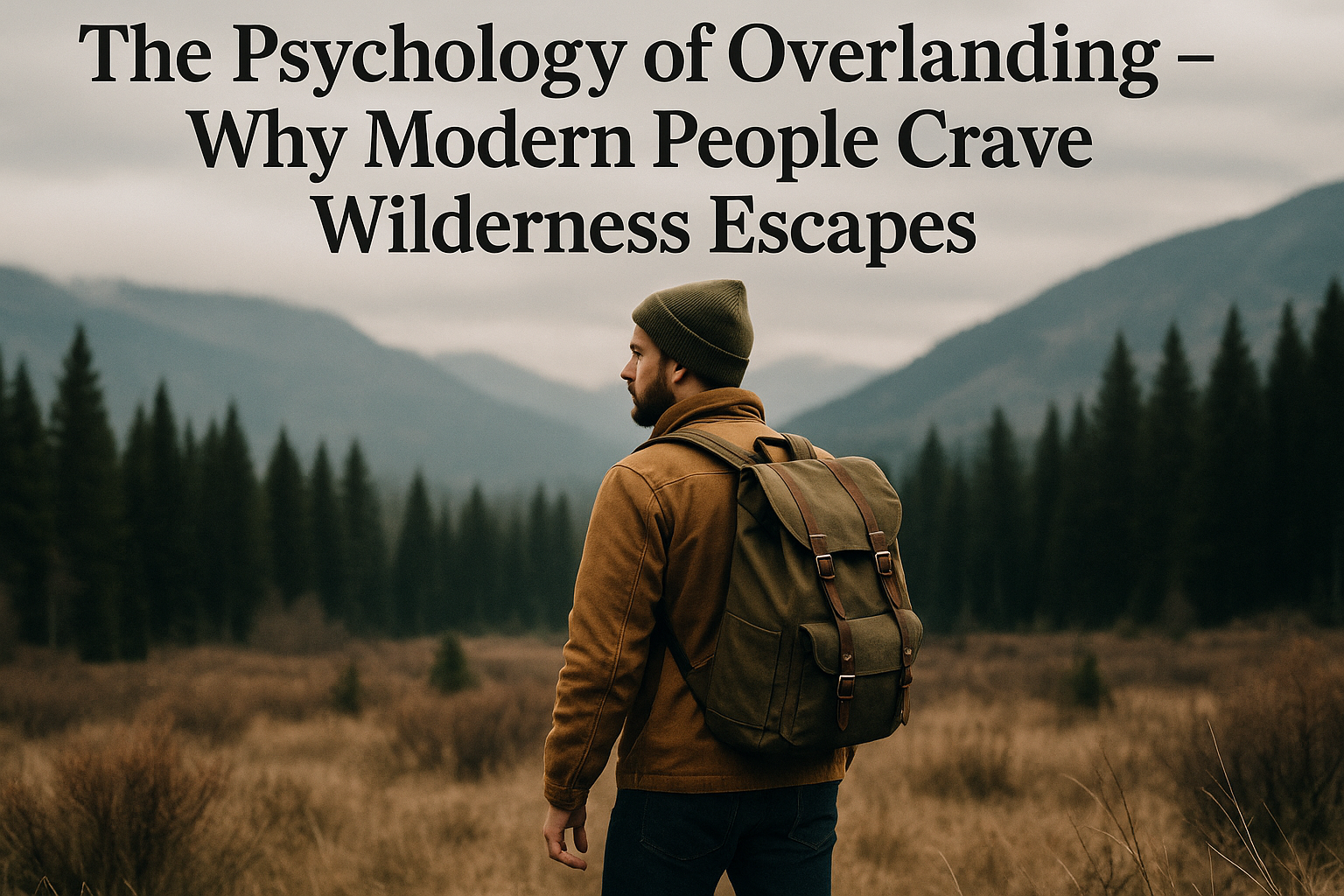Overlanding is more than a travel trend. It is a psychological response to a growing disconnect between modern life and our most fundamental human needs. In a world dominated by screens, schedules, and artificial environments, people increasingly feel the urge to rewild their lives—to step outside the noise and reclaim a sense of autonomy, simplicity, and purpose. Overlanding offers exactly that: the freedom to venture into the wilderness, the satisfaction of self-reliance, and the opportunity to reconnect with the natural world on its own terms.
The Call of the Wild in a Digital Age
Human beings did not evolve in cities or offices. For 99% of human history, we lived in nature—hunting, foraging, and navigating the landscape with our senses fully engaged. Today, many people live in permanent states of overstimulation and under-connection. Notifications replace birdsong, artificial light replaces sunrise, and routine replaces curiosity. Overlanding provides a powerful antidote. It removes the noise and reintroduces challenge, novelty, and genuine freedom.
The appeal is not only physical but deeply emotional. When you’re navigating a dirt trail, cooking over an open flame, or watching the stars from a campsite miles from civilization, you experience something that modern life rarely offers: presence. Stress dissipates when attention is anchored in the here and now.
Control vs. Uncertainty – Why Overlanding Feels Liberating
In everyday life, most aspects are predictable and controlled. But in the wilderness, nature sets the rules. Weather changes without warning, roads disappear in the sand, and you must adapt to each new condition. Far from being stressful, this kind of uncertainty is psychologically stimulating. It awakens problem-solving instincts and boosts confidence. Every obstacle conquered—whether it’s a muddy climb or a vehicle recovery—is a reminder of your capability and resilience.
Overlanding offers a rare balance of control and unpredictability. You control your journey, your pace, your setup. But nature provides the challenge. That combination creates a deep sense of satisfaction—and it is one of the main reasons overlanders often describe their trips as transformational.
The Need for Simplicity
Life today is saturated with complexity. We are surrounded by endless options, information overload, and constant pressure to optimize every moment. Many people feel disconnected from real meaning. Overlanding answers that by stripping life back to essentials: shelter, food, water, exploration. Instead of juggling dozens of decisions each day, your focus narrows to what truly matters. Where will I sleep tonight? How far can I go before sunset? This simplicity is not limiting; it is liberating.
Nature as a Reset for the Human Mind
Multiple studies have shown that time in nature reduces cortisol levels, improves sleep quality, enhances creativity, and restores mental clarity. But overlanding goes beyond a weekend hike or a short camping trip. It immerses you in nature for extended periods. The longer you are out there, the more your internal rhythm synchronizes with the environment. You wake with the light, rest when the stars appear, and begin to feel part of something larger than yourself.
Many overlanders describe a profound sense of peace that arises only after several days disconnected from the modern world. The mind settles. Thoughts become clearer. The noise of daily life fades into the background.
Self-Reliance and Identity
In the wilderness, you are responsible for your safety, food, navigation, and survival. Instead of anxiety, this responsibility often leads to pride and personal growth. You begin to see yourself differently—not as a consumer of convenience, but as a capable individual who can adapt, solve problems, and thrive in the unknown.
This shift in identity is powerful. Overlanding transforms travel into a personal journey—a reconnection with both nature and self.
Conclusion: More Than a Hobby, It’s a Return to Human Nature
Overlanding is not about escaping society—it is about returning to something deeply human. It satisfies our ancient need for exploration, autonomy, and connection with the natural world. In an age of digital fatigue and environmental disconnection, overlanding provides a path back to what our minds and bodies were designed for: movement, challenge, discovery, and simplicity.
For many, that’s not just appealing—it’s essential.

